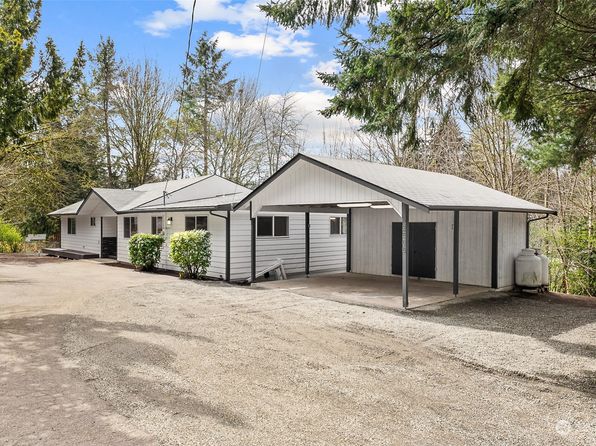
Getting your real estate california license can be one of the most important steps to take in pursuing your career in the real estate industry. It requires you to be at least 18 years old, complete specific real estate coursework, pass an exam, and undergo a background check.
How long does it take to get a real estate license?
The amount of time you need to complete your California Real Estate License depends on the program you choose. But if it's a traditional classroom based course, you should plan to spend at minimum a year in class. Online real-estate courses are a flexible option that allows you to learn whenever and wherever it suits you. You can choose to take in-person courses at various locations in California if that is what you prefer.
How long does the prelicensing training last?
The first step to getting your California real estate license is to take the required pre-licensing courses. This usually involves a three-course series at college level that focuses on real property principles and practice. These courses count toward your 135-hour total class requirement. Although you can use your own resources to study, it is best to use the materials and tools that are offered by an accredited institution.

How long are the real estate courses?
To earn a license, you need to complete at least 135 hours of college-level real estate coursework. This includes at minimum 90 hours of coursework in real-estate education and a minimum 45 hours of coursework for other applicable law, statutory or regulatory courses.
You can use your bachelor's degree from another field to meet this requirement. It will, however, only count toward your 90-hour real property courses. This means that you will still have to complete 45 hours of real-estate education in a California-approved school.
How Long is the Real Estate School in California?
There are a variety of real estate schools in California that offer a range of educational offerings. Some provide traditional classroom instruction while others focus on text-based or video-based education.
The online learning packages are different, but they all cover the basics of becoming a real estate agent. Some online courses include live Q&As and access supplemental marketing and business courses. This can help you begin working right after passing your licensing exam.

Allied Real Estate Schools has a range of online courses, from the Bronze package all the way up to the advanced Silver package. This package includes the entire online content along with live Q&A. Students have the option of upgrading their learning packages, which includes additional marketing and business classes, hard-copy textbooks, as well digital exam Flashcards.
The majority of reputable California realty schools offer a money-back guarantee. This means that you can test out their materials and programs before making a final decision. You can get a refund if you don't like their teaching style or you fail your state's licensing test. This is an excellent way to make sure that the company you're considering is a good fit for your needs, and you can rest easy knowing that they are invested in helping you pass your exam and find employment once you've passed.
FAQ
What are the pros and cons of a fixed-rate loan?
With a fixed-rate mortgage, you lock in the interest rate for the life of the loan. This guarantees that your interest rate will not rise. Fixed-rate loans also come with lower payments because they're locked in for a set term.
How many times do I have to refinance my loan?
This will depend on whether you are refinancing through another lender or a mortgage broker. In either case, you can usually refinance once every five years.
How can I fix my roof
Roofs can leak due to age, wear, improper maintenance, or weather issues. Roofing contractors can help with minor repairs and replacements. Get in touch with us to learn more.
What is reverse mortgage?
A reverse mortgage lets you borrow money directly from your home. It works by allowing you to draw down funds from your home equity while still living there. There are two types: government-insured and conventional. A conventional reverse mortgage requires that you repay the entire amount borrowed, plus an origination fee. If you choose FHA insurance, the repayment is covered by the federal government.
What should I look for when choosing a mortgage broker
A mortgage broker assists people who aren’t eligible for traditional mortgages. They compare deals from different lenders in order to find the best deal for their clients. Some brokers charge a fee for this service. Other brokers offer no-cost services.
Statistics
- It's possible to get approved for an FHA loan with a credit score as low as 580 and a down payment of 3.5% or a credit score as low as 500 and a 10% down payment.5 Specialty mortgage loans are loans that don't fit into the conventional or FHA loan categories. (investopedia.com)
- The FHA sets its desirable debt-to-income ratio at 43%. (fortunebuilders.com)
- This seems to be a more popular trend as the U.S. Census Bureau reports the homeownership rate was around 65% last year. (fortunebuilders.com)
- Private mortgage insurance may be required for conventional loans when the borrower puts less than 20% down.4 FHA loans are mortgage loans issued by private lenders and backed by the federal government. (investopedia.com)
- This means that all of your housing-related expenses each month do not exceed 43% of your monthly income. (fortunebuilders.com)
External Links
How To
How to Buy a Mobile Home
Mobile homes can be described as houses on wheels that are towed behind one or several vehicles. Mobile homes are popular since World War II. They were originally used by soldiers who lost their homes during wartime. People who live far from the city can also use mobile homes. Mobile homes come in many styles and sizes. Some houses are small, others can accommodate multiple families. Even some are small enough to be used for pets!
There are two main types of mobile homes. The first is made in factories, where workers build them one by one. This occurs before delivery to customers. The other option is to construct your own mobile home. First, you'll need to determine the size you would like and whether it should have electricity, plumbing or a stove. You will need to make sure you have the right materials for building the house. Finally, you'll need to get permits to build your new home.
Three things are important to remember when purchasing a mobile house. A larger model with more floor space is better for those who don't have garage access. If you are looking to move into your home quickly, you may want to choose a model that has a greater living area. The trailer's condition is another important consideration. It could lead to problems in the future if any of the frames is damaged.
Before you decide to buy a mobile-home, it is important that you know what your budget is. It is important that you compare the prices between different manufacturers and models. You should also consider the condition of the trailers. Many dealers offer financing options. However, interest rates vary greatly depending upon the lender.
You can also rent a mobile home instead of purchasing one. Renting allows you the opportunity to test drive a model before making a purchase. Renting is not cheap. The average renter pays around $300 per monthly.